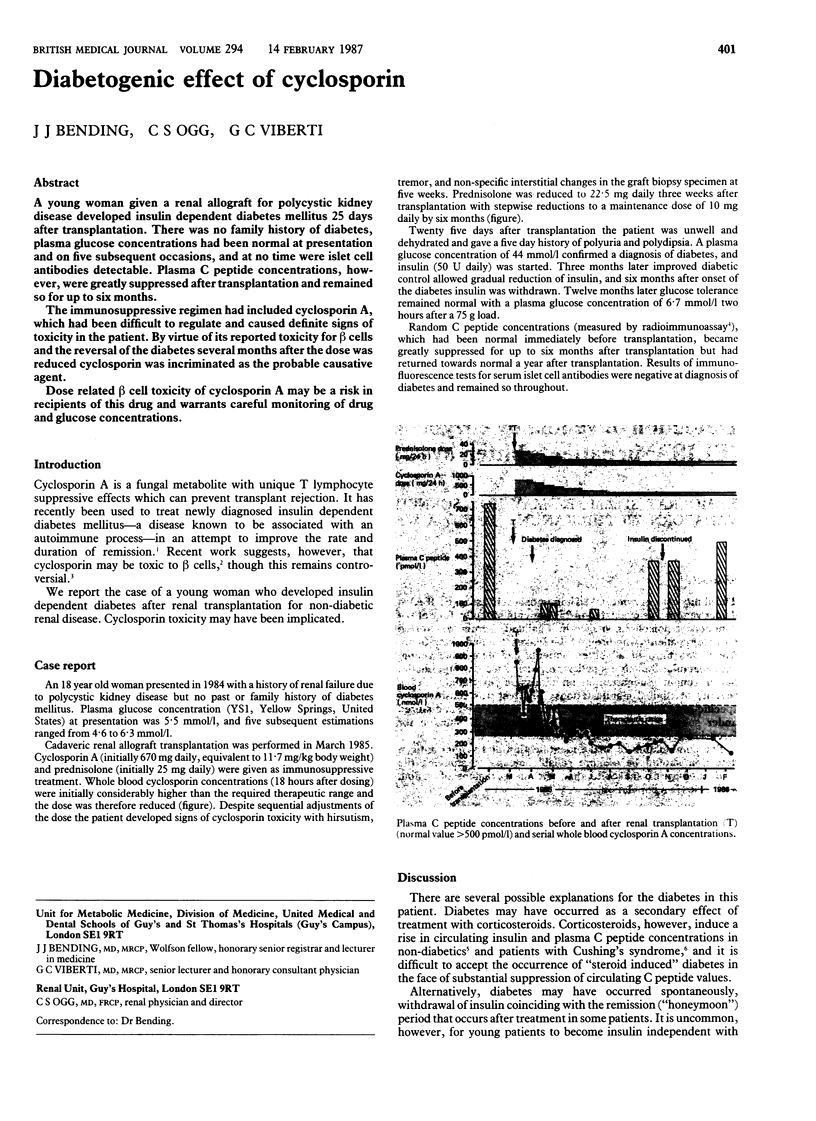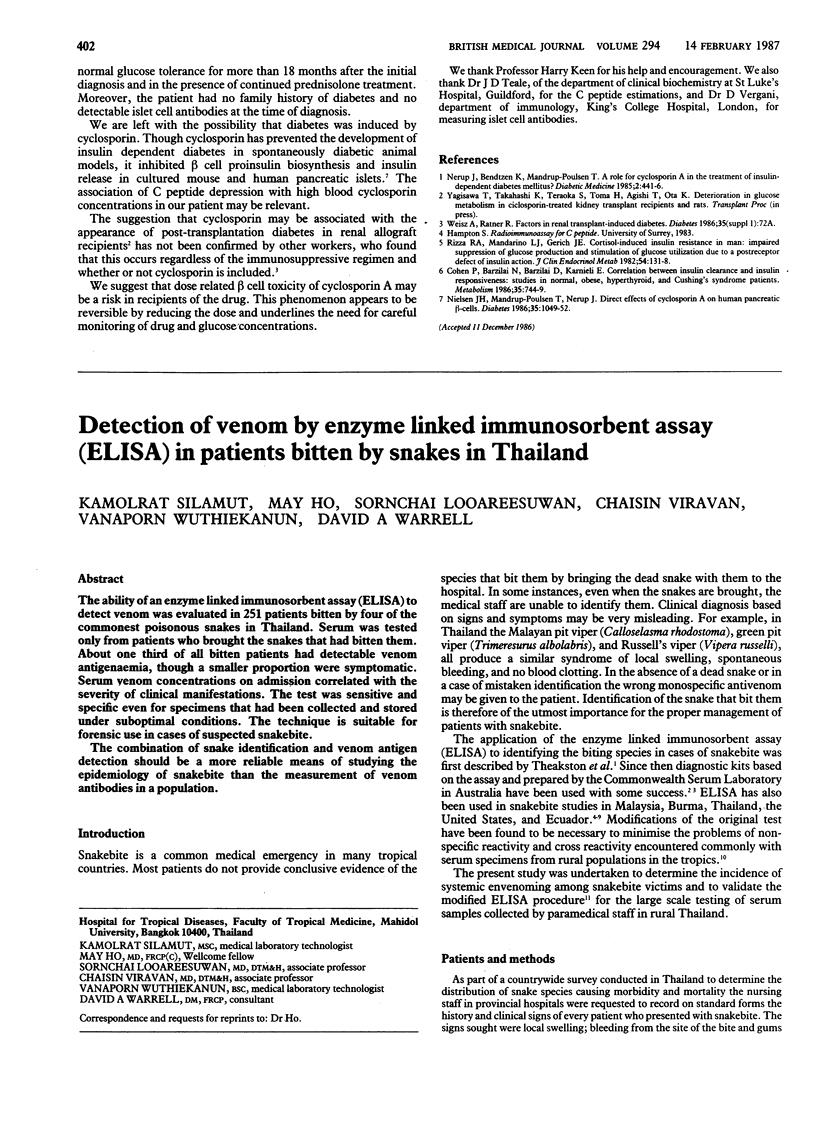Abstract
A young woman given a renal allograft for polycystic kidney disease developed insulin dependent diabetes mellitus 25 days after transplantation. There was no family history of diabetes, plasma glucose concentrations had been normal at presentation and on five subsequent occasions, and at no time were islet cell antibodies detectable. Plasma C peptide concentrations, however, were greatly suppressed after transplantation and remained so for up to six months. The immunosuppressive regimen had included cyclosporin A, which had been difficult to regulate and caused definite signs of toxicity in the patient. By virtue of its reported toxicity for beta cells and the reversal of the diabetes several months after the dose was reduced cyclosporin was incriminated as the probable causative agent. Dose related beta cell toxicity of cyclosporin A may be a risk in recipients of this drug and warrants careful monitoring of drug and glucose concentrations.
Full text
PDF

Selected References
These references are in PubMed. This may not be the complete list of references from this article.
- Cohen P., Barzilai N., Barzilai D., Karnieli E. Correlation between insulin clearance and insulin responsiveness: studies in normal, obese, hyperthyroid, and Cushing's syndrome patients. Metabolism. 1986 Aug;35(8):744–749. doi: 10.1016/0026-0495(86)90242-8. [DOI] [PubMed] [Google Scholar]
- Nerup J., Bendtzen K., Mandrup-Poulsen T. A role for cyclosporin A in the treatment of insulin-dependent diabetes mellitus? Diabet Med. 1985 Nov;2(6):441–446. doi: 10.1111/j.1464-5491.1985.tb00679.x. [DOI] [PubMed] [Google Scholar]
- Nielsen J. H., Mandrup-Poulsen T., Nerup J. Direct effects of cyclosporin A on human pancreatic beta-cells. Diabetes. 1986 Sep;35(9):1049–1052. doi: 10.2337/diab.35.9.1049. [DOI] [PubMed] [Google Scholar]
- Rizza R. A., Mandarino L. J., Gerich J. E. Cortisol-induced insulin resistance in man: impaired suppression of glucose production and stimulation of glucose utilization due to a postreceptor detect of insulin action. J Clin Endocrinol Metab. 1982 Jan;54(1):131–138. doi: 10.1210/jcem-54-1-131. [DOI] [PubMed] [Google Scholar]


